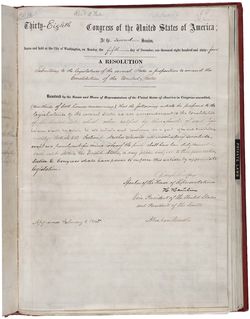This article includes a list of general references, but it lacks sufficient corresponding inline citations .(September 2018) |
| |||||
| Decades: | |||||
|---|---|---|---|---|---|
| See also: | |||||

Events from the year 1865 in the United States. The American Civil War ends with the surrender of the Confederate States, beginning the Reconstruction era of U.S. history.











